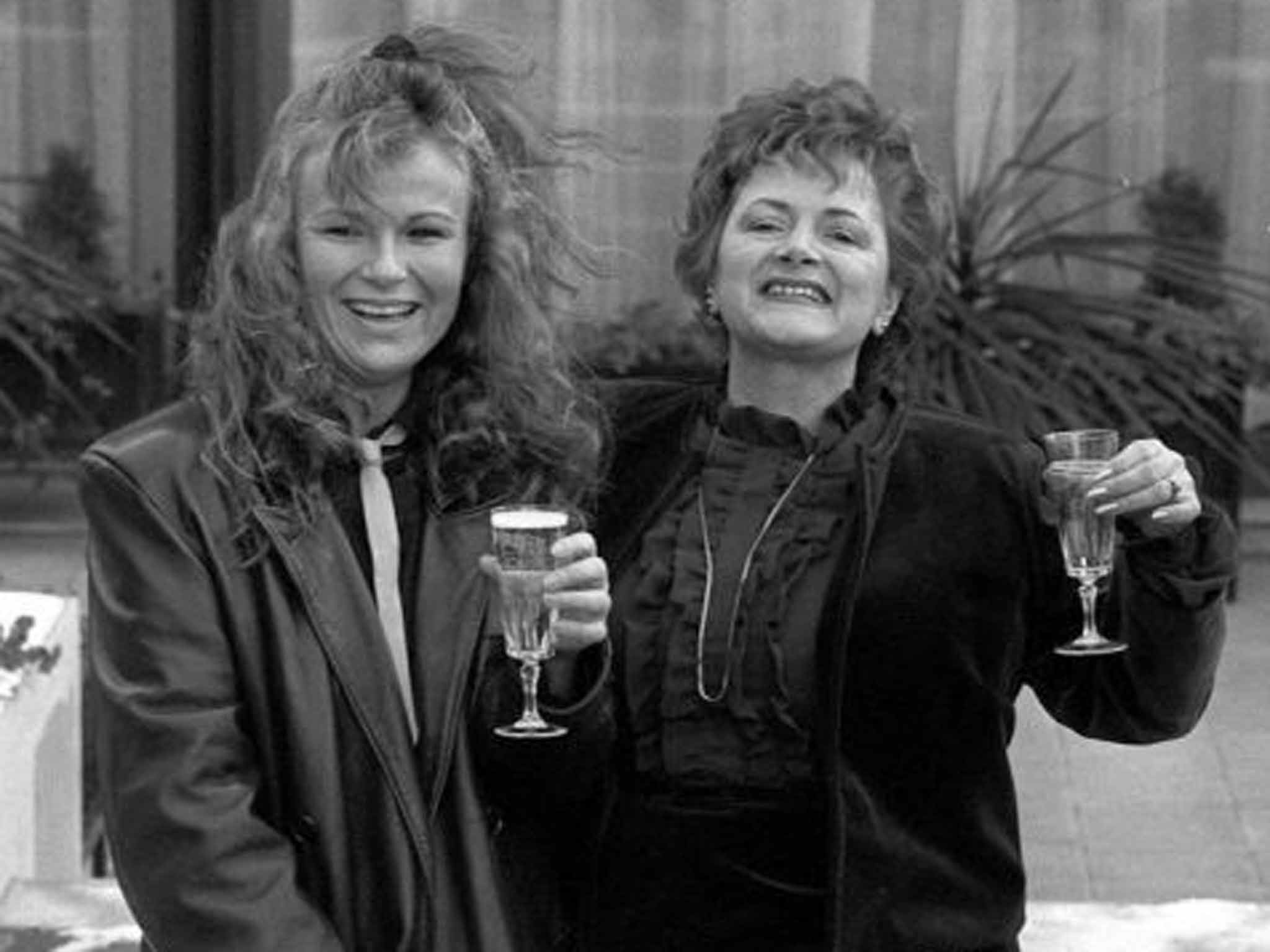Cynthia Payne: Brothel-keeper known as 'Madam Cyn' whose life was depicted in the Bafta-winning 'Personal Services'
Her book Entertaining at Home provided amusing advice on hosting house parties and even on how to deal with the police, if necessary

Cynthia Payne was the “English madam”, or “Madam Cyn”, a brothel-keeper whose colourful life became the subject of books and films including the classic comedy Personal Services. Payne first came to fame in 1978 when police raided her home and found a sex party taking place. Officers discovered more than 50 men, including lawyers and clergymen, dressed in maid's outfits and waiting to be spanked. “For months afterwards,” she recalled, “the media would write of queues of middle aged and elderly men waiting to exchange their luncheon vouchers for food, drink, friendly chat, striptease shows, and a trip upstairs with the girl of their choice.”
The case came to court two years later. Payne was convicted for running “the biggest disorderly house” in history and sentenced to 18 months' prison, reduced to six on appeal. She was released from Holloway after four.
Her life caught the eye of the biographer Paul Bailey, who described her as “a chirpy little Cockney woman going round telling people to behave themselves”. His 1982 book An English Madam: Life and Work of Cynthia Payne inspired director Terry Jones, of Monty Python fame, and David Leland, to turn her story into Personal Services. Leland, who wrote the script, recalled, “I was in my agent's – Jenny Casarotto's – office one day... Jenny told me about her and that they were talking about adapting a play from Paul Bailey's biography, which I put under my coat and sneaked out, because I wasn't supposed to have it... Some time passed and when the idea of the play seemed to go into limbo, we decided to make a feature film of it.”
Starring Julie Walters, Personal Services (1987) won a Bafta for best screenplay and is especially memorable for its final courtroom scene where Payne has a brief vision of the judge dressed in his school uniform, recalling his fetish session at her home.
Payne had organised a party to celebrate the end of filming in 1986. But once again, police raided the house and she was charged with nine counts of controlling prostitutes. At the end of the 13-day trial in 1987 judge Brian Pryor's summing up included the stern warning to jurors that the case was a criminal trial and not some kind of entertainment. After more than five hours the jury of eight men and four women found her not guilty; the courtroom burst into spontaneous applause.
“This is a victory for common sense,” said Payne. “But I have to admit all this has put me off having parties for a bit.” She sent Pryor a copy of her 1982 autobiography, An English Madam, inscribed with the advice, “I hope this book will broaden your rather sheltered life.”
She turned from self-styled “party organiser” into a campaigner. “Galvanised into action by the second trial, I was determined to change Britain's archaic sex laws,” she said, “This was the motivation behind my standing for parliament as a candidate for the Payne and Pleasure Party in the Kensington by-election in July 1998.” She also stood for the Rainbow Alliance Payne and Pleasure Party at Streatham in the 1992 General Election but lost her deposit both times. Her rivals included Screaming Lord Sutch, who would become a lifelong friend.
Interviewed with Sutch by Isabell Wolff for this newspaper in 1995, she said, “I think what we have in common is that we both like to shock people. He does this horror act, this Jack the Ripper act, in pubs and clubs, and he shocks people with that. I suppose some people would find me shocking in a way.”
Leland had become fascinated by Payne's life while writing Personal Services, and wrote and directed Wish You Were Here (1987), starring Emily Lloyd and Tom Bell, based on Payne's early years and titled for a remark Payne had made, wishing for her mother, who had died when she was 10.
She was born in Bognor on Christmas Eve 1932. Expelled from boarding school for being a “bad influence” she first worked as a waitress in Brighton. Aged 18 and unmarried, she had her first child and chose prostitution to pay the bills. When a fellow sex-worker rented her room for a session with a client she realised that hosting prostitutes could provide both a living and entertainment. As she once told a policeman, “I prefer to enjoy the parties these days. Anyway, the hostess can't keep disappearing all night.”
Her second book, Entertaining at Home (1987), provided amusing advice on hosting house parties and even on how to deal with the police, if necessary. She played a three-week season at Edinburgh Fringe in 1992 to packed audiences, and in later life took to the after-dinner speaking circuit.
Her friend Kevin Horkin spoke of her beliefs, “which shone through strongly in the campaigning activity she was involved with in order to change Britain's sex laws.” He added, “She was a person with a very big heart. She is someone who epitomised the phrase 'what you saw is what you got.'”
Cynthia Payne, brothel-keeper and campaigner: born Bognor 24 December 1932; two children; died 15 November 2015.
Join our commenting forum
Join thought-provoking conversations, follow other Independent readers and see their replies
Comments
Bookmark popover
Removed from bookmarks